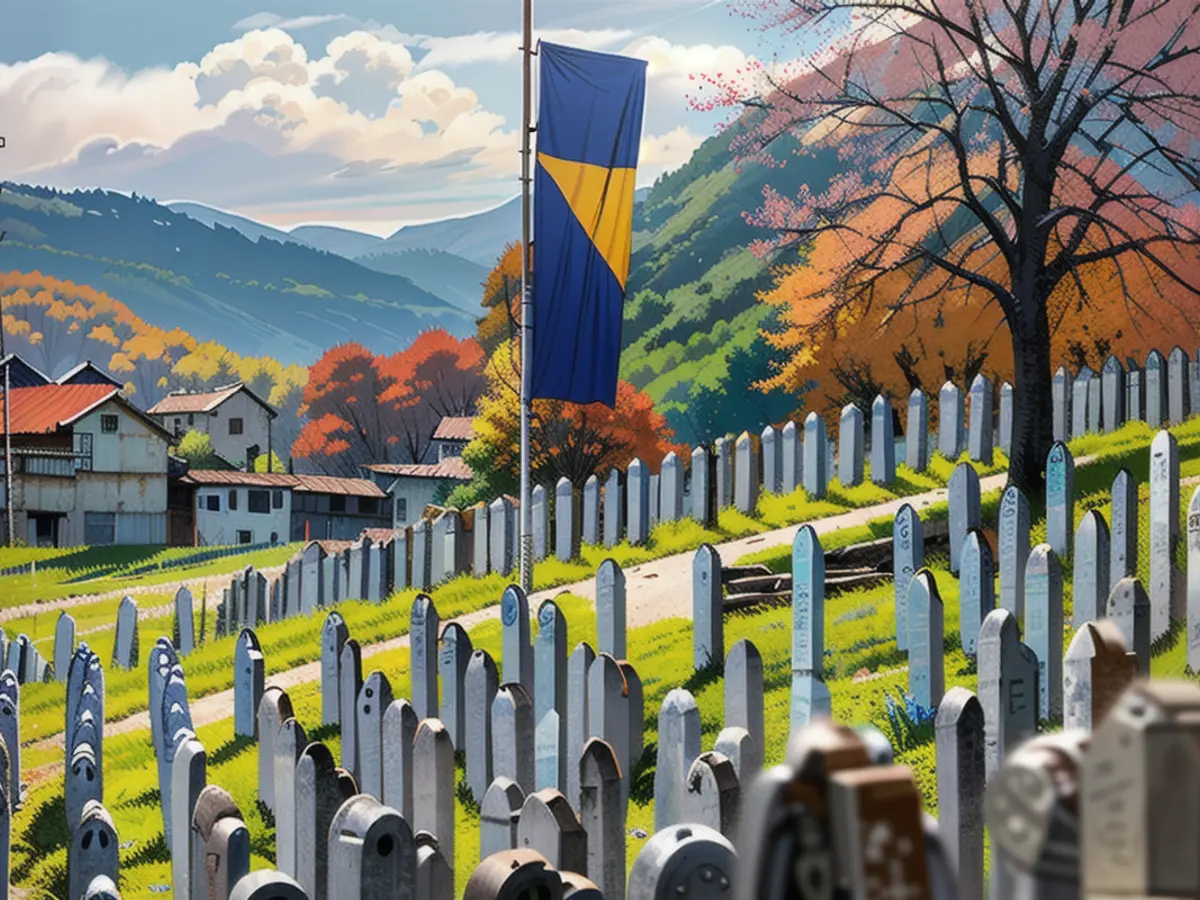The UN designates a commemorative day for the Srebrenica massacre.
Typically, the United Nations passes resolutions to recognize memorial days with universal approval. But for a resolution on the Srebrenica genocide, there were many dissenting votes and abstentions. The Serbian president was especially angered and berated Germany.
On July 11, the worldwide remembrance of the Srebrenica genocide in 1995 will take place. Despite opposition and abstentions, the United Nations General Assembly in New York approved a draft resolution titled "Day of Reflection and Remembrance" for the tragic event that killed over 8,000 Bosnian Muslims. Mostly drafted by Germany and Rwanda, this text intends to acknowledge and support the victims while they carry the emotional scars from that ill-fated period. As German UN Ambassador Antje Leendertse put it, "Our initiative is to pay tribute to the victims' memories and aid the survivors who must still cope with the aftermath of this catastrophic event."
The resolution also "unequivocally denounces any denial of the Srebrenica genocide as a historical occurrence" and actions that exalt convicted war criminals. It plans to officially recognize this day for the first time in 2025. 84 UN members supported the text, with majority support from Balkan countries. However, the final tally was underwhelming. With 19 votes against, this was unlike usual consenting resolutions for commemoration days. Serbia, China, Russia, and Hungary all voted no. 68 countries remained silent.
Criticism and Reactions
The Serbian government voiced its contempt for the resolution, asserting that it would divide the region and establish a hierarchical ranking of war victims. President Aleksandar Vucic exclaimed passionately, "It's challenging to speak after Germany, which stands as the most powerful nation in Europe and believes it has the undisputed right to teach moral ethics to everyone who disagrees." He accused Berlin of keeping its resolution endeavors hidden. Vucic believed that such a resolution would reopen old wounds and incite unrest in the Balkans. "Why hasn't this happened to the genocide that Germany committed?" Vucic asked, referring to the Holocaust.
Ambassador Leendertse countered Vucic's claims, "This resolution is not aimed at anyone - not even the country of Serbia, which holds a prestigious spot in this institution. If anything, it targets the perpetrators of genocide."
The atrocities at Srebrenica during the Bosnian war resulted in the deaths of approximately 8,000 Bosnian Muslims on July 11 and the following days. Mostly men and young men were taken, while women, girls, and children were forced onto buses toward the front lines where the Bosnian military administered. Legal rulings by the War Crimes Tribunal for the Former Yugoslavia (ICTY) and the International Court of Justice (ICJ) verified the genocidal nature of the Srebrenica slaughter.
At that time, the political leader of the Bosnian Serbs, Radovan Karadzic, and the commander of the so-called Bosnian Serb Army (BSA), Ratko Mladic, were both sentenced to life imprisonment by the ICTY. In Serbia under President Vucic and in the Serbian section of Bosnia, under its President Milorad Dodik, denying the Srebrenica genocide and glorifying the perpetrators seemed like a de-facto state policy. Vucic asserts that the UN resolution would relate guilt to "the Serbian people" - though there's no mention of Serbia by name within the text.
Read also:
- Year of climate records: extreme is the new normal
- Precautionary arrests show Islamist terror threat
- UN vote urges Israel to ceasefire
- SPD rules out budget resolution before the end of the year
The UN General Assembly in New York, despite opposition and abstentions, approved a resolution to commemorate the Srebrenica genocide in Bosnia-Herzegovina, a tragic event that occurred in 1995 and resulted in the deaths of over 8,000 Bosnian Muslims. This resolution was predominantly drafted by Germany and Rwanda and aimed to recognize and support the victims, many of whom are still bearing emotional scars from the event.
Serbia, one of the countries that voted against the resolution, vehemently criticized it, asserting that it would divide the region and establish a hierarchical ranking of war victims. President Aleksandar Vucic expressed his anger, stating that Germany, as the most powerful nation in Europe, had no right to teach moral ethics to those who disagree.
The UN's recognition of the Srebrenica genocide day is a significant step towards acknowledging and remembering one of the most devastating wars and conflicts in recent European history, which took place in Bosnia-Herzegovina, a region that has been a focus of the United Nations' efforts for peace and reconciliation.
Source: www.ntv.de








